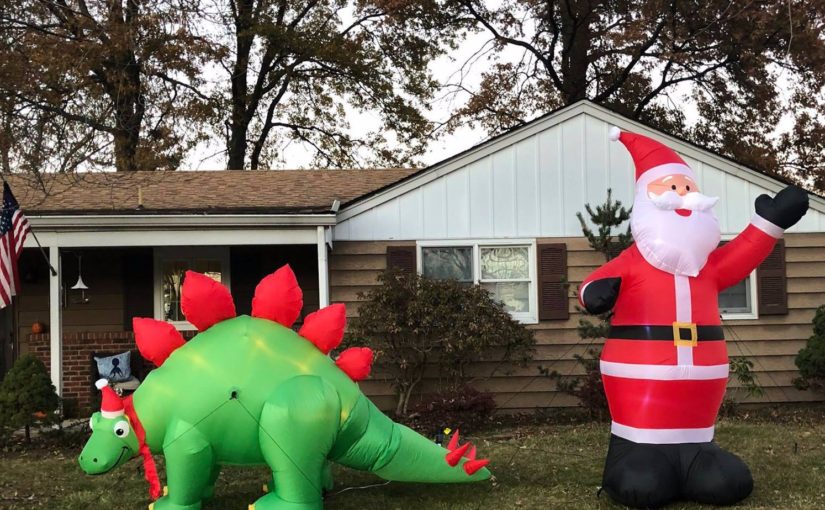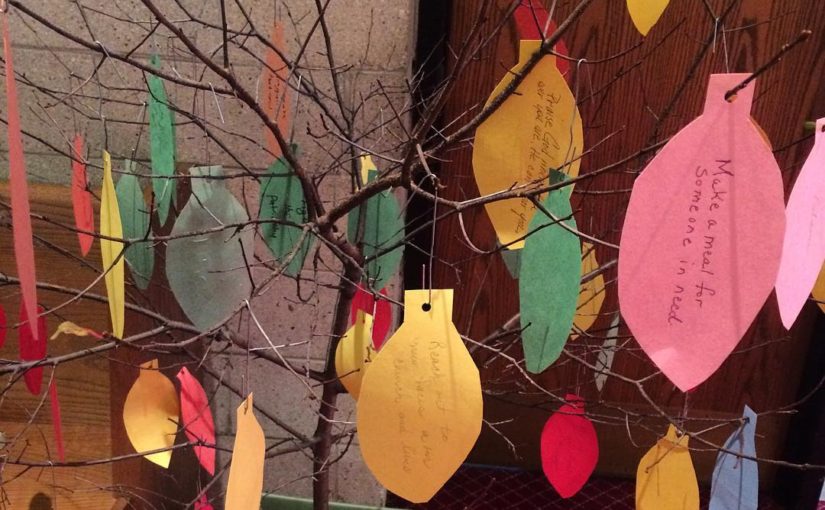After these things Jesus showed himself again to the disciples by the Sea of Tiberias; and he showed himself in this way. Gathered there together were Simon Peter, Thomas called the Twin, Nathanael of Cana in Galilee, the sons of Zebedee, and two others of his disciples. Simon Peter said to them, “I am going fishing.” They said to him, “We will go with you.” They went out and got into the boat, but that night they caught nothing.
Just after daybreak, Jesus stood on the beach; but the disciples did not know that it was Jesus. Jesus said to them, “Children, you have no fish, have you?” They answered him, “No.” He said to them, “Cast the net to the right side of the boat, and you will find some.” So they cast it, and now they were not able to haul it in because there were so many fish. That disciple whom Jesus loved said to Peter, “It is the Lord!” When Simon Peter heard that it was the Lord, he put on some clothes, for he was naked, and jumped into the sea. But the other disciples came in the boat, dragging the net full of fish, for they were not far from the land, only about a hundred yards off.
When they had gone ashore, they saw a charcoal fire there, with fish on it, and bread. Jesus said to them, “Bring some of the fish that you have just caught.” So Simon Peter went aboard and hauled the net ashore, full of large fish, a hundred fifty-three of them; and though there were so many, the net was not torn. Jesus said to them, “Come and have breakfast.”
John 21:1-12a
This bit from John chapter 21 is one of my favorite parts in all of scripture. But to really know why I like this text so much, we need to rewind one full chapter. Chapter 20 is full of what Jesus does after the resurrection. He meets Mary Magdalene in the garden and she mistakes him for the gardner. Later on, Jesus walks into the room where his disciples are gathered together, hiding in fear. They did not expect Jesus’ death and they’re not sure what to do next. Jesus shows up to say hello and he makes a plan to come back the following week. But not everyone was in the room that first time. The Apostle Thomas didn’t believe what his friends told him. So Jesus responds by making sure Thomas is in the room when he shows up, and Jesus invites Thomas to see the holes in his hands and side. And then, after these stories, the entire chapter ends with a conclusion telling us that the gospel of John doesn’t report everything Jesus said and did – but it shares what we need for a full life with God. These last verses wrap up the entire book. It truly the end of the story. But then we turn the page and Jesus is there, inviting us to breakfast. The gospel according to John is supposed to end with Chapter 20. But it doesn’t. Jesus’ story with his disciples, continues. When we get to those moments in our life that feel like endings; when we get to those moments when disease or death draws our loved ones away from us, scripture tells us that our story, with Jesus, continues. And that story starts with an invitation.
Invitations can be powerful things. An invitation connects us to new experiences, new people, and new ideas. An invitation can bring people and communities into our lives that we never knew before. And an invitation is why I am here today. My first experience with T. was through his daughter-in-law, A. She called my church office when I was away from my desk so my parish administrator took a message and left it for me. On a piece of bright pink paper with the words “While You Were Out” on top, there was a name, a phone number, and a short note asking me to call back. Right there, in black ink, was my invitation into the story God had already written in the life of T.C. Sr. But I’ve also learned that this wasn’t the only invitation to show up this week. An invitation from one of T. and R.’s neighbors is what connected them to our church. And when I talked to their neighbor last Sunday before worship started, she shared with me that she had extended an invitation to R. over breakfast – and she was thrilled to find R. later that morning, waiting for the bus to church. This same neighbor made sure to invite me to meet R. And as I sat with R. in the back pews, before worship started, I got a taste of who T. was. I was honored and blessed to see the love R. has for him. I heard about his faith and his heart. And I felt the sorrow and sadness all deaths bring but also witnessed the thankfulness we have for the special people God brings into our lives.
I never knew T. but I know that you did. All of you are a testament to the life he lived. It was a life that began with an invitation to know God – an invitation God extended and made true to T. in his baptism. And in the years since, Jesus’ invitation to be with T., no matter what, was an invitation Jesus never walked away from. T.’s weariness is now gone. His burden is light. And he is now discovering the fullness of love that Jesus’ invitation brings while basking in the eternal light of our glorious Lord, forever and ever.
Amen.
A sermon on John 21:1-12 at a memorial service held a Funeral Home in Tenafly on 11/30/2017.



